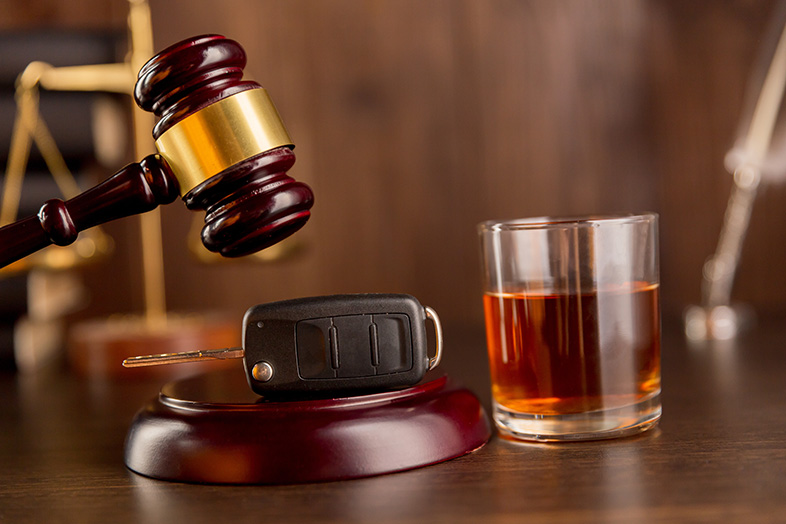If you’ve been stopped by law enforcement and accused of driving with a BAC for under 21 above the legal limit, you might feel overwhelmed, confused, and scared about what happens next. This is a situation that can unravel quickly, especially if you don’t understand your rights or how zero tolerance laws work. But take a breath. You’re not alone—and this article is here to help you navigate what comes next with confidence and clarity.
In this in-depth guide, we’ll unpack what BAC for under 21 really means under the law, why the consequences are often more serious than people expect, and how to protect yourself if you’re facing allegations. We’ll look at real-life scenarios, Texas-specific legal insights, and how the smallest mistake—like a few sips of alcohol—can lead to criminal charges with long-lasting effects.

What Does BAC for Under 21 Mean in Legal Terms?
To understand why these allegations carry so much weight, you need to first understand what BAC means. BAC stands for Blood Alcohol Concentration—the amount of alcohol in your bloodstream measured as a percentage. For example, a BAC of 0.08% means there are 0.08 grams of alcohol per 100 milliliters of blood.
Texas Zero Tolerance Laws for Underage Drivers
If you’re under 21 in Texas, the standard BAC threshold doesn’t apply. You don’t need to hit 0.08% to be in trouble. In fact, any detectable amount of alcohol in your system while operating a motor vehicle is enough for law enforcement to file charges.
This is because Texas enforces what’s called a Zero Tolerance Law for minors. It’s illegal for anyone under 21 to drive with any measurable amount of alcohol in their system—even 0.01%. So yes, just one beer, one sip of champagne, or even mouthwash can trigger a BAC for under 21 allegation.
Real-World Story: One Beer, One Traffic Stop, One Life Disrupted
Let’s meet Josh. He was 19, a college sophomore in Austin, and had a clean record. One night, after a birthday party, he drove a friend home. He’d had a single light beer earlier in the evening—something he barely gave a second thought to. Unfortunately, he was pulled over for a busted taillight.
The officer smelled alcohol, gave Josh a field sobriety test, and then a breathalyzer. His BAC was 0.02%. That’s below the adult legal limit, but for someone under 21, it was more than enough. He was arrested, charged under Texas’s Zero Tolerance Law, and had his driver’s license automatically suspended.
Josh didn’t hurt anyone. He wasn’t even impaired. But the BAC for under 21 rule in Texas doesn’t care about that—it cares about whether any alcohol was present. That arrest followed him through job applications, background checks, and college scholarship renewals. And it all started with a single beer.
How Texas Law Treats BAC for Under 21 Offenses
So what happens if you’re pulled over and suspected of violating the BAC for under 21 threshold? The consequences vary depending on whether it’s your first offense, your BAC level, and whether you cooperated with testing.
First-Time Offense Penalties
- Class C Misdemeanor
- Fines up to $500
- 20 to 40 hours of community service
- Driver’s license suspension for 60 days
- Mandatory alcohol awareness class

It’s important to know that even a minor conviction like this can appear on your criminal record. And unlike some other minor offenses, there are strict timelines for contesting license suspensions and criminal charges.
Aggravated Circumstances
Things get worse if:
- You refuse to take a breath or blood test.
- Your BAC is close to or above 0.08%—then you can be charged with DWI, which carries harsher penalties.
- Someone else was injured, or property was damaged.
In those cases, you could be looking at criminal charges that stick for years, impact your job opportunities, and cost you thousands in legal fees.
Understanding the Administrative License Revocation (ALR) Process
Texas has a separate administrative system that handles license suspensions, even if you haven’t been convicted yet. It’s called ALR—and it kicks in fast.
If you test positive for alcohol or refuse testing, the Department of Public Safety (DPS) will notify you that your driver’s license is being suspended. You have only 15 days from the arrest date to request a hearing.
At the hearing, you can challenge the legality of the stop, the testing methods, and whether the BAC reading was accurate. But if you miss the deadline? Your license goes into suspension automatically. That’s why understanding BAC for under 21 allegations—and reacting quickly—is so important.
Do You Need a Lawyer for a BAC Under 21 Charge?
In a word: yes. Here’s why. Even though it may seem like a “minor” offense, a BAC for under 21 charge in Texas can still create a permanent criminal record. And that can affect your:
- College admissions
- Financial aid eligibility
- Future job applications
- Car insurance rates
- Professional licenses
An attorney can help you request the ALR hearing, negotiate a plea (such as deferred adjudication), or even fight to have the charge dismissed. They can also help you expunge your record later if you’re eligible.
Without legal representation, many young drivers accidentally plead guilty—thinking they’re getting it over with—only to face unexpected consequences down the road.
What Counts as “Any Detectable Alcohol”?
One of the trickiest parts of BAC for under 21 allegations is how broadly the law defines “detectable alcohol.” That includes:
- Beer, wine, spirits—even in small amounts
- Medications or over-the-counter products containing alcohol
- Fermented foods
- Mouthwash with alcohol content
So if you’re wondering whether a BAC of 0.01% can really lead to legal trouble, the answer is absolutely. And that makes your defense all the more important.
Real-Life Defense: Breathalyzer Error Nearly Convicted an Innocent Teen
In Corpus Christi, a 20-year-old named Mia was pulled over late at night. She hadn’t been drinking but had taken cold medicine earlier that evening. A roadside breath test read 0.02% BAC.
She was arrested under suspicion of violating BAC for under 21 laws, but her attorney dug deeper. Turns out the breathalyzer hadn’t been calibrated in over 60 days—well outside legal standards. A motion to suppress the test was granted, and the charges were dropped.
Without an attorney, Mia would have had a conviction she didn’t deserve. That’s the power of legal defense in zero tolerance cases.
BAC for Under 21 and Your Criminal Record: What’s the Long-Term Damage?
Even if your penalty seems light, the long-term effects of a BAC for under 21 conviction can be significant.
- Background Checks: Employers, universities, and even apartment landlords may see the charge.
- Scholarships and Grants: Some financial aid programs disqualify students with alcohol-related offenses.
- Military and Security Clearance: These applications can be denied due to alcohol charges.
- Professional Licensing: Nurses, teachers, and other licensed professionals must report charges during application.

That’s why fighting a BAC for under 21 charge isn’t just about avoiding fines—it’s about protecting your future.
How to Legally Defend Against BAC for Under 21 Allegations
If you’ve been charged, here’s how an experienced attorney may build your defense:
Challenge the Traffic Stop
If there was no valid reason to pull you over (like a broken taillight or speeding), the stop may be unlawful. Evidence collected afterward—including BAC results—could be thrown out.
Question the Test’s Accuracy
Breathalyzers are prone to errors from improper calibration, software bugs, or even user error. Your lawyer can request maintenance logs and challenge test reliability.
Argue Procedural Violations
Were you properly advised of your rights? Was the breath test administered correctly? If not, your case could be dismissed on technical grounds.
Negotiate for Deferred Adjudication
This option lets you plead no contest without a formal conviction. If you complete the court’s requirements, your record could be sealed later.
Can You Expunge a BAC for Under 21 Charge?
Yes—in many cases. If you’re charged but not convicted, or if you complete a deferred adjudication program successfully, you may be eligible for expungement or non-disclosure.
This legal relief can give you a clean slate and prevent one mistake from following you into adulthood.
That means your arrest and court records could be hidden from the public. But you usually must wait a specific period, and your record must remain clean. A defense attorney can walk you through that process.
They can also help ensure that the expungement petition is filed correctly, increasing the chances of approval.
Final Thoughts: Know Your Rights and Take Action Fast
Facing a BAC for under 21 charge in Texas is serious, but it doesn’t have to define your future. The most important step you can take is not to delay. The law moves quickly—license suspension, court dates, and long-term consequences all begin within days of your arrest.
This isn’t the time to take chances. Hire an attorney who knows how to fight BAC for under 21 cases, request your ALR hearing before the deadline, and push for the best possible outcome.
Texas law may be tough on underage drinking and driving, but you still have rights—and you deserve a fair defense.


